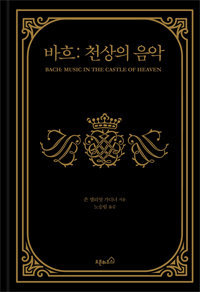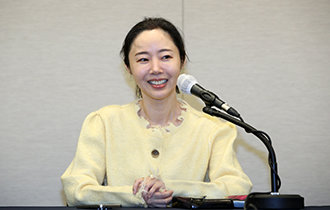Bach is a touchy soul who defies unfairness
Bach is a touchy soul who defies unfairness
Posted January. 09, 2021 07:55,
Updated January. 09, 2021 07:55

It takes as many as 180 pages, a length long enough to consist of a complete book, to encounter Sebastian Bach, an 18-year-old boy who's just ready to stand on his feet on the music stage. Being a voluminous book, it does not aim to describe the lifetime of the Great Bach inside out.
This book was written by famous British maestro John Eliot Gardiner, founder of the Monteverdi Choir and the English Baroque Soloists. The author puts focus on highlighting the significance and appeals of the greatest musician's songs – cantatas, two Passions and a B-minor Mass. Just two chapters on the St. John Passion and the St. Matthew Passion are describable and informative enough to make for the perfect academic book.
Gardiner tells that Bach's cantatas have the traces of the composer's performance embedded in them, the topics of which range from the Church Calendar to the Farmer's Almanac to topical issues. The author likens the musical vestiges to the vocal tone of somebody who conforms to natural circulation patterns and seasonal changes and stays in high spirits at the thought of spending an afterlife mingling with angels. It well explains the intent of the book’s subtitle “Music in the castle of heaven.”
This book also looks more closely at the human aspects of a man named Bach than any other books on Bach does. Through the lens of the author, Bach is seen not only as a faithful Lutheran Protestant but also as a touchy person. He did not mind confronting the church about its unfair rules. He made his music boring by arranging the same words repeatedly or hid a secret message in the giggling sounds of instruments when he wanted to tease the clergy for giving nonsensical instructions to their followers. Such a rebellious and defiant quality allowed him to try new things in his music.
Bach’s cantatas in chorus and solo versions were performed only for churches. As Bach praised the coffee savor by saying, "Ah! How sweet coffee tastes! Lovelier than a thousand kisses, sweeter far than muscatel wine,” the Coffee Cantata has been widely received across the world. Musical concerts at coffee houses were the forerunner of public performances in the late 18th century. Escaping control of the Leipzig city council, Bach wanted to secure a foothold as a musical director who can represent the city. Coffeehouses and churches were used as a stage for him to realize his dreams.
gustav@donga.com







